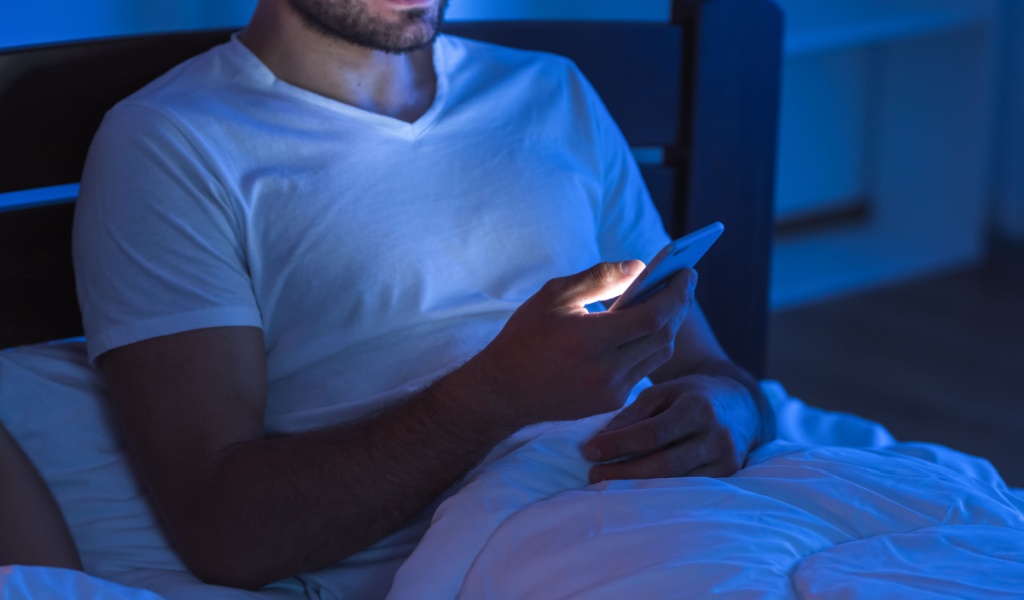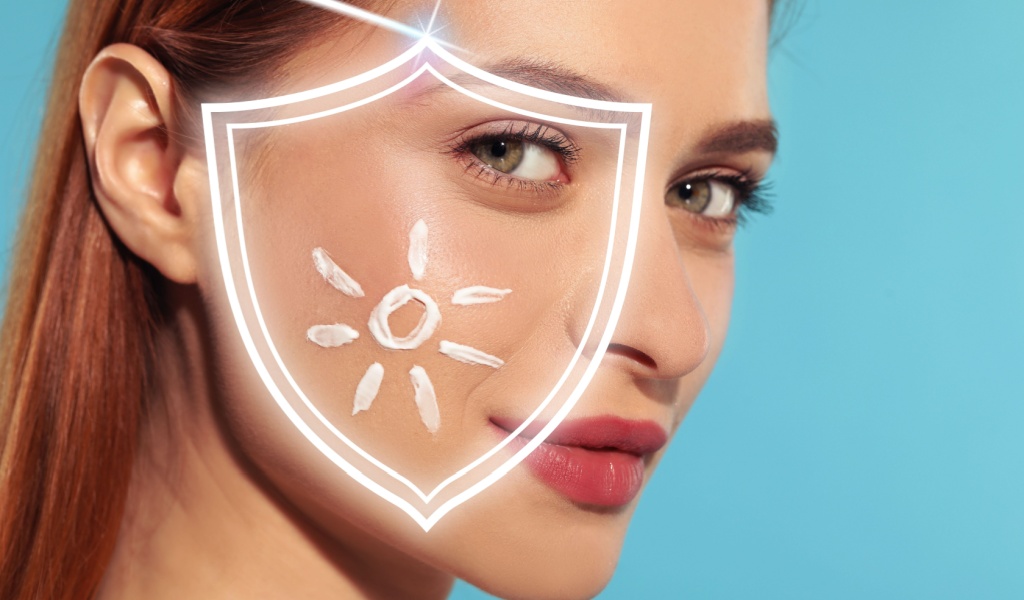Living in today’s modern era means our lives are intertwined with technology. Most of us spend a lot of time in front of a screen, scrolling through social media on our mobile devices, working on computers, or watching TV shows. All this excessive screen time can impact your skin thanks to exposure to blue light, a high-energy visible light emitted by electronic devices. Such behavior can cause skin problems, from long-lasting hyperpigmentation to premature aging.
As shocking as this may be, it is unlikely that we are willing to forgo our smartphones and computers to save our skin. Luckily, sunscreen can help protect your skin. Plenty of skincare products are specifically curated to block harmful blue light rays!

What Is Blue Light?
Blue light is the color on the visible light spectrum. Electronic devices like computers and smartphones emit it. Other sources of blue light include the sun and some types of indoor lighting. Essentially, blue light has higher energy and a shorter wavelength than other colors of light. This shorter wavelength is what allows it to penetrate the skin deeper than other colors of light. Exposure to it, particularly for extended hours or at night, can affect sleep patterns, the eyes, and skin.
The consequence of living a life so deeply connected with technology is that we don’t get enough natural light during the day. Overexposure to high levels of artificial light causes your skin to bear the brunt, accelerating skin issues. Research also shows that just one hour of exposure to light emitted from electronic devices is sufficient to cause plenty of skin damage.
Blue light emitted from the sun during the daytime is essential to our daily light exposure. However, we need to be aware of the effects of excessive exposure, especially from artificial sources. Some effects of excessive blue light on the skin include the following:
- It causes the skin to produce Reactive Oxygen Species (ROS), which causes oxidative stress. ROS accelerates the process of aging by causing wrinkles, fine lines, and age spots.
- It can interfere with the skin’s normal barrier process, making the skin dry, sensitive, and inflammatory.
- It triggers an overproduction of melanin, leading to uneven skin tone, hyperpigmentation, and dark spots.
The Role of Sunscreen
With an increased awareness of the harmful effects of blue light on the skin, sunscreen formulations have adapted to offer protection specifically against blue light. There are two primary types of sunscreen:
- Physical sunscreen uses active ingredients that sit on the skin’s surface after application. It is designed to reflect UV and blue light away from the skin, offering blue light protection.
- Chemical sunscreen is formulated with chemical ingredients that absorb UV light and can sometimes irritate the skin. This type of sunscreen does not offer any blue light protection.

If you spend a lot of time in front of a screen, it would be worthwhile to invest in blue-light sunscreen that can protect your skin from damage and photoaging. Ensure you opt for physical sunscreen with mineral filters like zinc oxide and titanium dioxide. These are known to create a physical barrier on the skin, refracting blue light and preventing it from penetrating the skin.
Always opt for a sunscreen labeled as “broad-spectrum protection.” Such sunscreens protect against UVA and UVB radiation that generally overlaps with the blue light spectrum. At the same time, go for antioxidant-rich formulations that include vitamin C, vitamin E, niacinamide, and green tea extract. These can help neutralize the light generated by blue light and limit damage to the skin. Sunscreens that are specifically formulated to block blue light include iron oxide, which absorbs and reflects blue light wavelengths, adding an extra layer of protection.
At the same time, there are certain ingredients that you should watch out for and altogether avoid. These include:
- Oxybenzone is a chemical that is absorbed quickly by the skin and affects many processes in the body.
- Octinoxate acts as a UV protector but can cause toxicity concerns.
- Homosalate is a chemical that is used to enhance skin absorption. However, it can cause endocrine disruption.
- Cinoxate, known for potentially damaging DNA, is therefore limited in many cosmetics.
For best results, consistently apply blue light sunscreen liberally to your face, covering all the exposed areas. Make it a pivotal part of your morning skincare routine and reapply it every two hours.
Bottom Line
We are surrounded by blue light, so we must take steps to protect our skin. The full extent of blue light’s impact on the skin is still being researched, so taking preventive measures against it is all the more important. When you include blue light sunscreen with antioxidant-rich formations, broad-spectrum protection, and mineral filters, you can minimize the skin damage caused by blue light.
While using sunscreen is important, you should also actively work to reduce your screen time and incorporate healthy lifestyle habits that can enhance your overall skin health.



